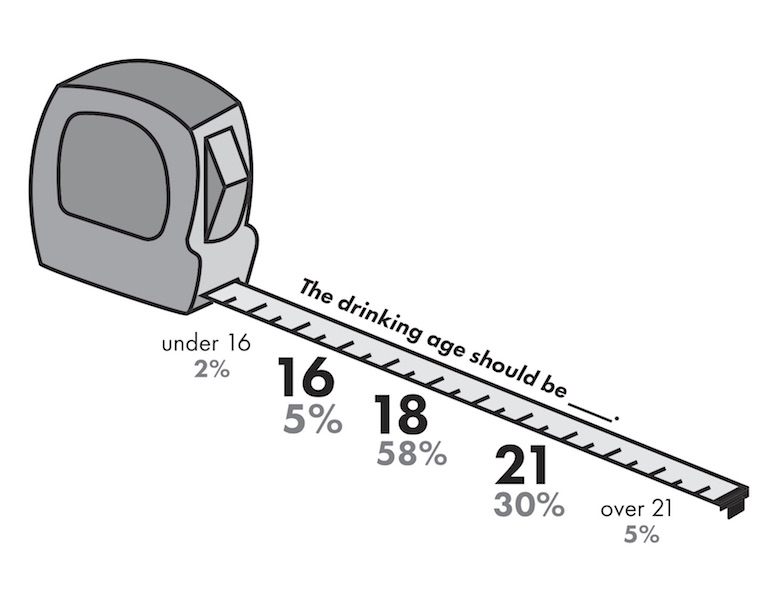Drinking Age in US is highest in the world
In a survey of CHS, students were asked what they felt the legal drinking age should be.
November 9, 2016
While 162 countries across six continents have a drinking age of 20 or below, the United States is one of only 12 with a minimum drinking age of 21. This hasn’t always been the case.
From the 1970s to the mid-1980s, it was common for states to have legal drinking ages of 18, 19 or 20. Society as a whole believed that if someone was old enough to be drafted to fight for their country in Vietnam, they were mature enough to drink in that country, according to the Washington Post.
But with this movement came an increase in vehicular accidents linked to substance abuse in young people, according to the National Institutes of Health. Out of all traffic deaths in the mid-1970s involving people ages 16 to 20, two-thirds involved alcohol.
The National Youth Rights Association reports that the anti-youth drinking organization Mothers Against Drunk Driving advocated for the National Minimum Drinking Age Act, which became law in 1984.
The Youth Rights Association reports the bill withheld five percent of federal highway funds for states that did not raise their age to 21 within two years and ten percent within three. This could have amounted to millions of dollars lost, practically forcing states to comply, the association stated.
The percentage of alcohol-related traffic deaths has dropped significantly since the implementation of the National Minimum Drinking Age Act. The NIH states that only 37 percent of traffic fatalities for people ages 16 to 20 involve alcohol in this decade, down from about 65 percent.
Still, the National Institute on Drug Abuse reported that 72 percent of students have consumed alcohol before graduating high school and 37 percent by eighth grade.
The youth population in non-American countries is viewed as mature in their handling of alcohol because of the relaxed attitudes adults concerning its consumption.
Young American citizens’ possible lack of maturity in drinking is discussed in an essay by Bettina Friese and Joel W. Grube of the Pacific Institute for Research and Evaluation:
“The idea is often expressed that because the drinking age in the United States in 21 … young people miss out on the opportunity to learn to drink within family settings where moderate drinking is the norm,” Friese and Grube wrote.
The book contains a chart comparing the intoxication rates between the United States and European countries. The chart shows that several nations including Netherlands, Belgium, Italy and Portugal, which all have drinking ages of 18 or below, have lower percentages of underage citizens who have been intoxicated in the last 30 days than the United States.
Consistent but controlled drinking from a young age with parental supervision is common for youths in many foreign countries. Harris Dickinson, 20, of London, England, interviewed by The Inkblot, recalled his experience of being eased into responsible alcohol use.




